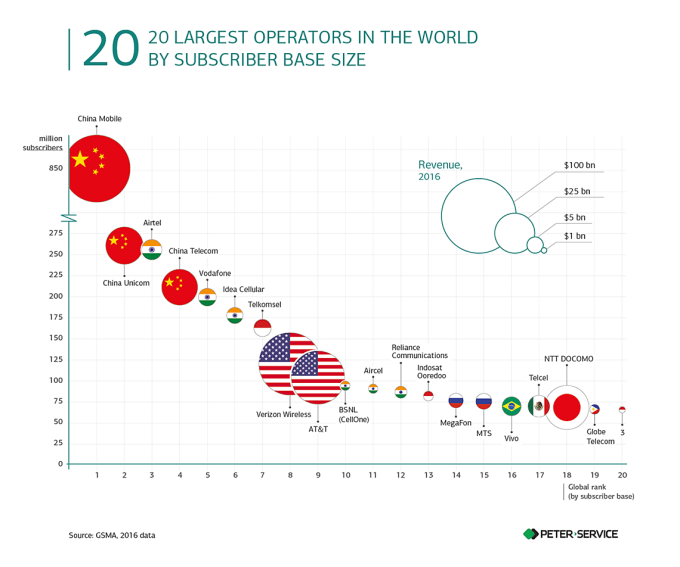French telecoms company Orange has just colonised the whole of West Africa following the commercial launch of Djoliba, a terrestrial and subsea fibre network to help deliver connectivity throughout the sub-region. The regional backbone reaches eight countries in total — Burkina Faso, Côte d’Ivoire, Ghana, Guinea, Liberia, Mali, Nigeria, and Senegal — with 16 points of presence and around 155 technical sites. From its submarine network, it ultimately reaches around 300 points of presence around the world. The Djoliba terrestrial fibre network spans over 10,000 km (around half of Orange’s total deployment in the region), alongside a further 10,000 km of submarine cables.

“Orange actively participates in the development of underwater and land infrastructures, which enable the digital transformation of the African continent, by investing 1 billion euros each year. With Djoliba, local populations will be able to access even more easily health or education services, as well as the uses offered by cloud computing. The development of access to digital technology is a major challenge for Africa and I salute the remarkable work of our teams in all the countries which made it possible for the Djoliba project to see the light of day,” Alioune Ndiaye, CEO of Orange Middle East and Africa.
Here Is Why Orange’s Djoliba Is Unique
- Until now, telecommunications networks in West Africa have been built within each country, right down to its borders: there was no cross-border network.
- To provide a service between two capitals, operators had to integrate the offerings of several providers and join together several different networks that interconnected at border points.
- A real innovation, the Djoliba network simplifies the interconnection processes between countries.
- Djoliba is the first network offering complete security in West Africa with more than 10,000 km of terrestrial optical fiber network, coupled with 10,000 km of submarine cable, offers at very high speeds (up to 100 Gbit / s) and 99.99% availability rate.
- This network covers 16 points of presence with a network of nearly 155 technical sites, and links 300 points of presence in Europe, America and Asia.
- It relies on Orange’s Tier 1 network and therefore allows seamless connection with the Group’s international networks.
- By using the very high-speed transmission offers of the Djoliba network, new network customers will then be able to access the Group’s platforms and thus benefit from the entire range of offers marketed by Orange in Africa: IP transit, mobile service platforms, hosting in Orange data centers in Africa, VPNs, etc.
- Operated and maintained from Dakar for greater efficiency, responsiveness and proximity, this new backbone covers 8 countries: Burkina Faso, Ivory Coast, Ghana, Guinea, Liberia, Mali, Nigeria and Senegal. Natively interconnected with domestic networks within countries, this broad coverage will make it possible to democratize access to connectivity for operators and businesses.
Read also: France’s Largest Telecom Operator, Orange, To Enter Nigerian And South African Markets
A Threat To Other Regional Competitors?
Djoliba may look like it is the best thing yet to happen to the telecommunications industry in West Africa, but regional industry players — MTN, Airtel, others— know the implications of this. Earlier in June this year, Orange’s Chief Executive Stephane Richard told Les Echos business newspaper that the company would benefit from having a wider footprint in Africa and would give itself a few months to make further inroads into the continent.
“It could make sense to be in economies such as Nigeria and South Africa,” Richard was quoted as saying. “If one considers there are things to do, the time frame I am considering is rather a few months than a few years.”
Perhaps launching Djoliba is a veiled attempt at fulfilling this promise.

The Middle East and Africa, where Orange has a presence in 18 countries, is the company’s fastest-growing market.
The region makes a large chunk of its revenues from payment transfers — a key part of the group’s diversification into financial services.
Orange said earlier this year it was bringing its operations in the Middle East and Africa into a single entity, paving the way for a potential listing of the operations that could raise cash to invest in overseas expansion.
Orange is currently present in 18 African countries and has more than 120 million customers. The Group continues to invest on the continent to offer reliable, secure and high-quality connectivity, and thus contribute to the digital inclusion of populations.
Djoliba Orange West Africa Djoliba Orange West Africa
What Does This Mean For West African Startups?
Djoliba means a lot of things to startups in West Africa. First, it will open up more of the previously unreached markets in the region, thereby increasing the available markets for African startups as well as aiding their expansion efforts.
Secondly, it is the first international attempt to link up French-speaking West African countries Burkina Faso, Côte d’Ivoire, Guinea, Mali, and Senegal with their English-speaking neighbors Nigeria, Ghana and Liberia. Thus, it would become easier to have cross-border connectivity with Djoliba.
“Thus, all operators, companies and institutions in West Africa now benefit from a seamless connectivity offer, open to the whole world, thanks to a single point of customer contact and unparalleled service availability,” Jérôme Barré, CEO Orange Wholesale & International Networks said.
Charles Rapulu Udoh

Charles Rapulu Udoh is a Lagos-based lawyer who has advised startups across Africa on issues such as startup funding (Venture Capital, Debt financing, private equity, angel investing etc), taxation, strategies, etc. He also has special focus on the protection of business or brands’ intellectual property rights ( such as trademark, patent or design) across Africa and other foreign jurisdictions.
He is well versed on issues of ESG (sustainability), media and entertainment law, corporate finance and governance.
He is also an award-winning writer
